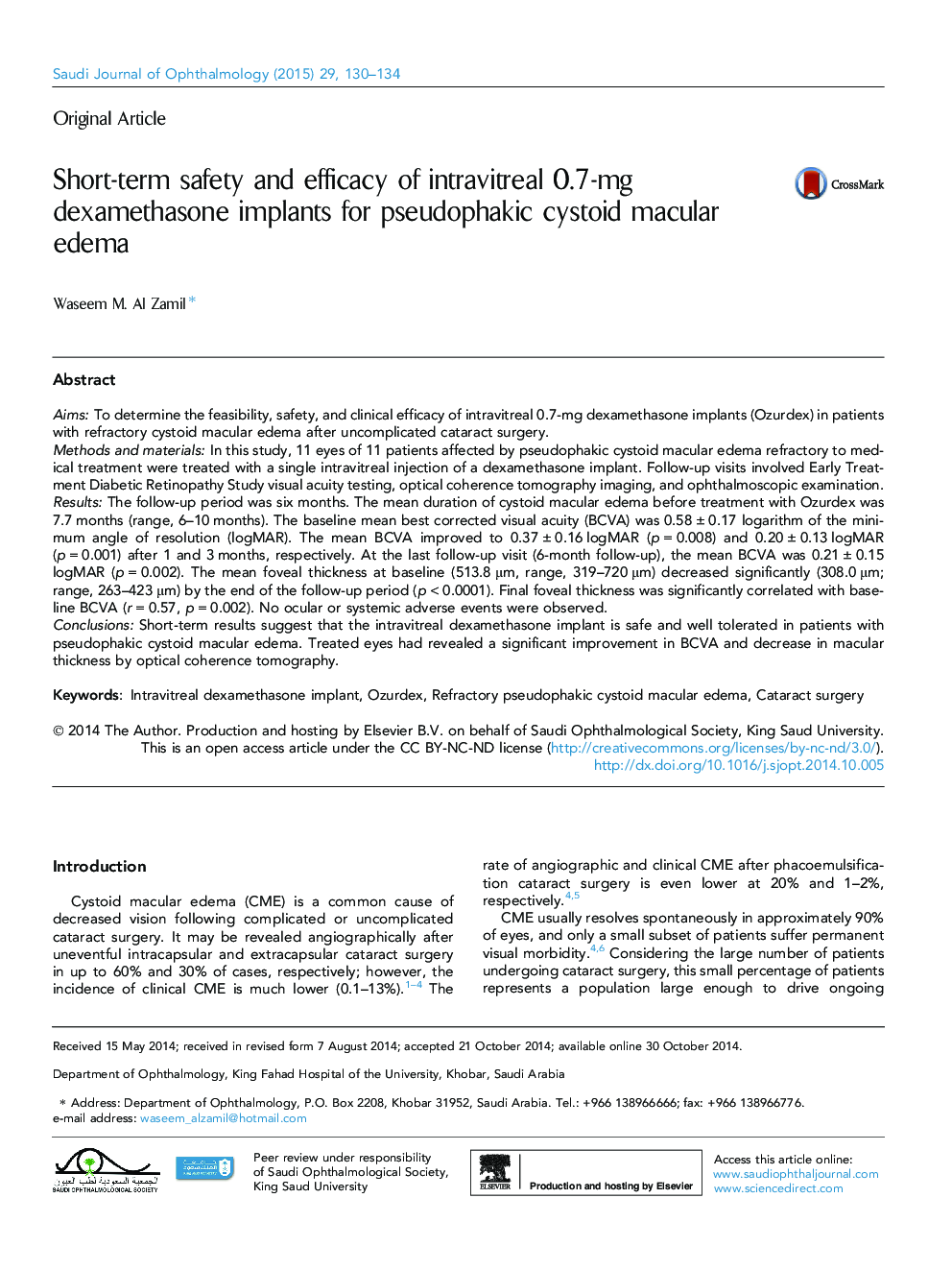| Article ID | Journal | Published Year | Pages | File Type |
|---|---|---|---|---|
| 2703853 | Saudi Journal of Ophthalmology | 2015 | 5 Pages |
AimsTo determine the feasibility, safety, and clinical efficacy of intravitreal 0.7-mg dexamethasone implants (Ozurdex) in patients with refractory cystoid macular edema after uncomplicated cataract surgery.Methods and materialsIn this study, 11 eyes of 11 patients affected by pseudophakic cystoid macular edema refractory to medical treatment were treated with a single intravitreal injection of a dexamethasone implant. Follow-up visits involved Early Treatment Diabetic Retinopathy Study visual acuity testing, optical coherence tomography imaging, and ophthalmoscopic examination.ResultsThe follow-up period was six months. The mean duration of cystoid macular edema before treatment with Ozurdex was 7.7 months (range, 6–10 months). The baseline mean best corrected visual acuity (BCVA) was 0.58 ± 0.17 logarithm of the minimum angle of resolution (logMAR). The mean BCVA improved to 0.37 ± 0.16 logMAR (p = 0.008) and 0.20 ± 0.13 logMAR (p = 0.001) after 1 and 3 months, respectively. At the last follow-up visit (6-month follow-up), the mean BCVA was 0.21 ± 0.15 logMAR (p = 0.002). The mean foveal thickness at baseline (513.8 μm, range, 319–720 μm) decreased significantly (308.0 μm; range, 263–423 μm) by the end of the follow-up period (p < 0.0001). Final foveal thickness was significantly correlated with baseline BCVA (r = 0.57, p = 0.002). No ocular or systemic adverse events were observed.ConclusionsShort-term results suggest that the intravitreal dexamethasone implant is safe and well tolerated in patients with pseudophakic cystoid macular edema. Treated eyes had revealed a significant improvement in BCVA and decrease in macular thickness by optical coherence tomography.
